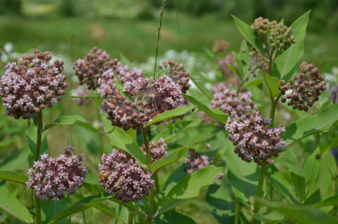17.03.22 – Outdoor clothing
Insulation material made of milkweed
Vegeto, a Canadian leader in the sustainable production and processing of plant textile fibres, has launched a high performance milkweed insulation material.
“This new insulation material fills a gap in the textile industry: a plant-based, ecofriendly insulation textile that makes no compromise on performance. Our alternative, conceived and produced in Canada, does not rely on the usual model of using animal-sourced or petroleum-based products; we are sowing the seeds of change for the entire garment and textile industry,” says Ghyslain Bouchard, general manager of Vegeto.
The non-woven laminated textile insulation is a mix of milkweed and kapok fibres, and a biopolymer made from cornstarch. Testing conducted at an independent laboratory (CTT Group) confirms the product’s exceptional thermal insulation properties. The CLO value ranges from 2.5 to 4.5, depending on the weight of the chosen product (100 g/m2, 150 g/m2, 200 g/m2 and 250 g/m2).
This weight range meets the insulation needs for mild spring weather as well as for winter’s frigid temperatures. “Study of the milkweed fibre’s properties revealed that its tubular form makes it an excellent thermal insulation material. The hollow part of the fibre stores air and maintains temperature. It’s this natural characteristic, which synthetic materials try to reproduce, that inspired us to create our milkweek insulation textile,” explains Mr. Bouchard. “I’ve always said that milkweed was the fibre of the future. We persevered through our unsuccessful trials, we built the machinery we needed to process the fibre. We always believed in this project, and the high performance product we now have on hand proves that it was all worthwhile.”
Vegeto works with Canadian farmers wishing to harvest a stable milkweed crop meeting textile-grade standards. Growing demand for the indigenous plant leads the company to consolidate more and more partnerships with farmers to ensure long term supply.


